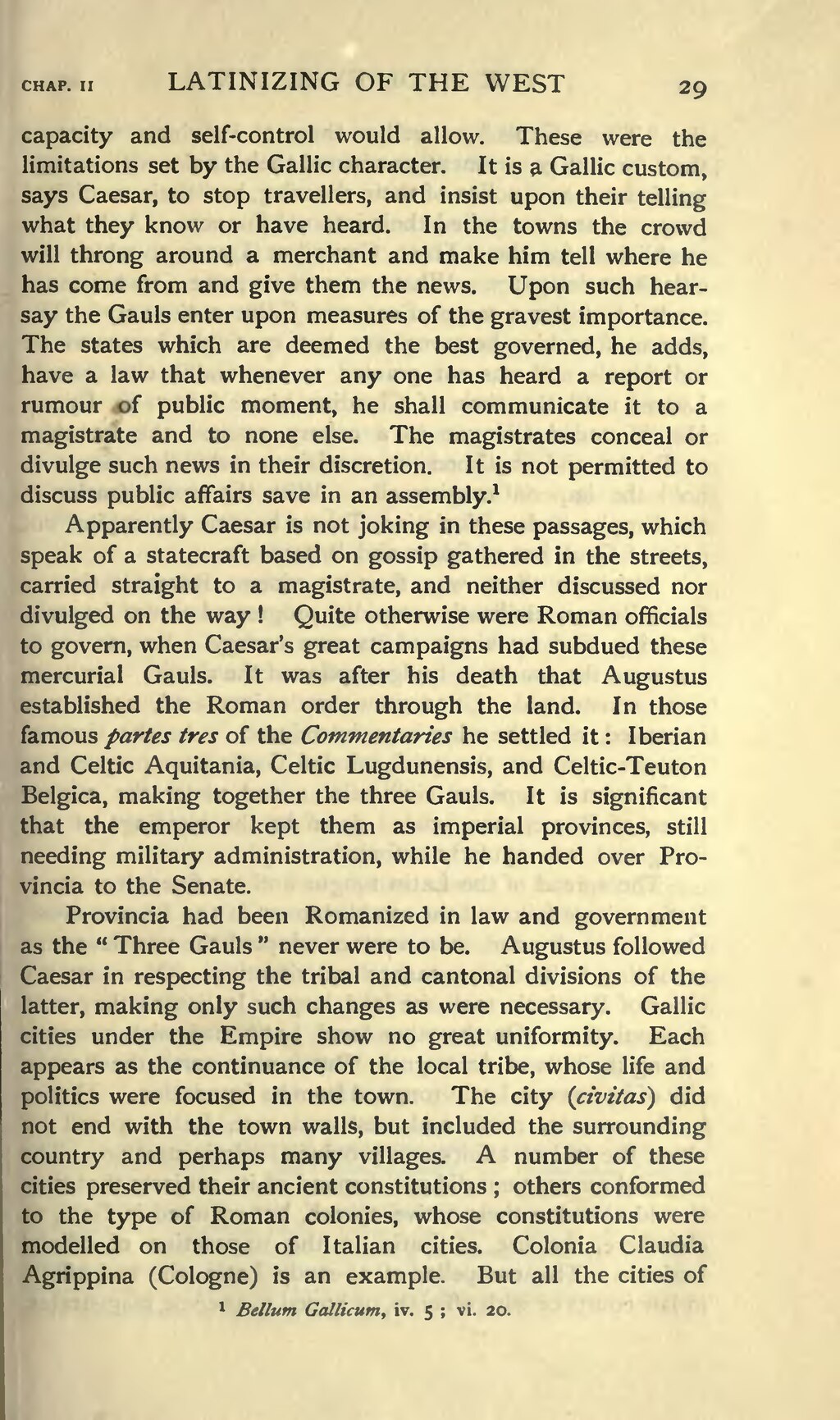capacity and self-control would allow. These were the limitations set by the Gallic character. It is a Gallic custom, says Caesar, to stop travellers, and insist upon their telling what they know or have heard. In the towns the crowd will throng around a merchant and make him tell where he has come from and give them the news. Upon such hearsay the Gauls enter upon measures of the gravest importance. The states which are deemed the best governed, he adds, have a law that whenever any one has heard a report or rumour of public moment, he shall communicate it to a magistrate and to none else. The magistrates conceal or divulge such news in their discretion. It is not permitted to discuss public affairs save in an assembly.[1]
Apparently Caesar is not joking in these passages, which speak of a statecraft based on gossip gathered in the streets, carried straight to a magistrate, and neither discussed nor divulged on the way! Quite otherwise were Roman officials to govern, when Caesar's great campaigns had subdued these mercurial Gauls. It was after his death that Augustus established the Roman order through the land. In those famous partes tres of the Commentaries he settled it: Iberian and Celtic Aquitania, Celtic Lugdunensis, and Celtic-Teuton Belgica, making together the three Gauls. It is significant that the emperor kept them as imperial provinces, still needing military administration, while he handed over Provincia to the Senate.
Provincia had been Romanized in law and government as the "Three Gauls" never were to be. Augustus followed Caesar in respecting the tribal and cantonal divisions of the latter, making only such changes as were necessary. Gallic cities under the Empire show no great uniformity. Each appears as the continuance of the local tribe, whose life and politics were focused in the town. The city (civitas) did not end with the town walls, but included the surrounding country and perhaps many villages. A number of these cities preserved their ancient constitutions; others conformed to the type of Roman colonies, whose constitutions were modelled on those of Italian cities. Colonia Claudia Agrippina (Cologne) is an example. But all the cities of
- ↑ Bellum Gallicum, iv. 5; vi. 20.
